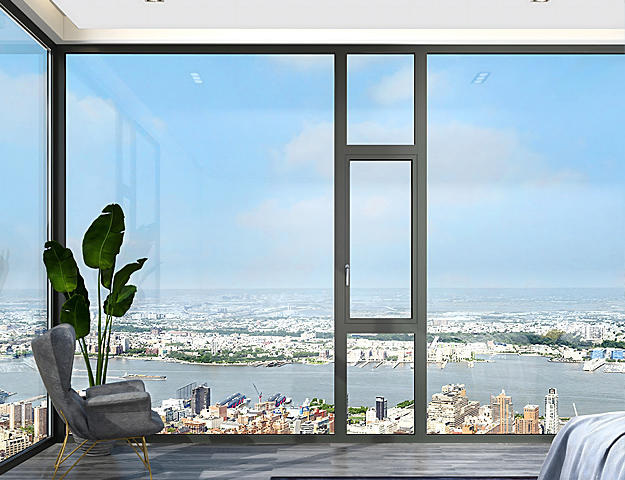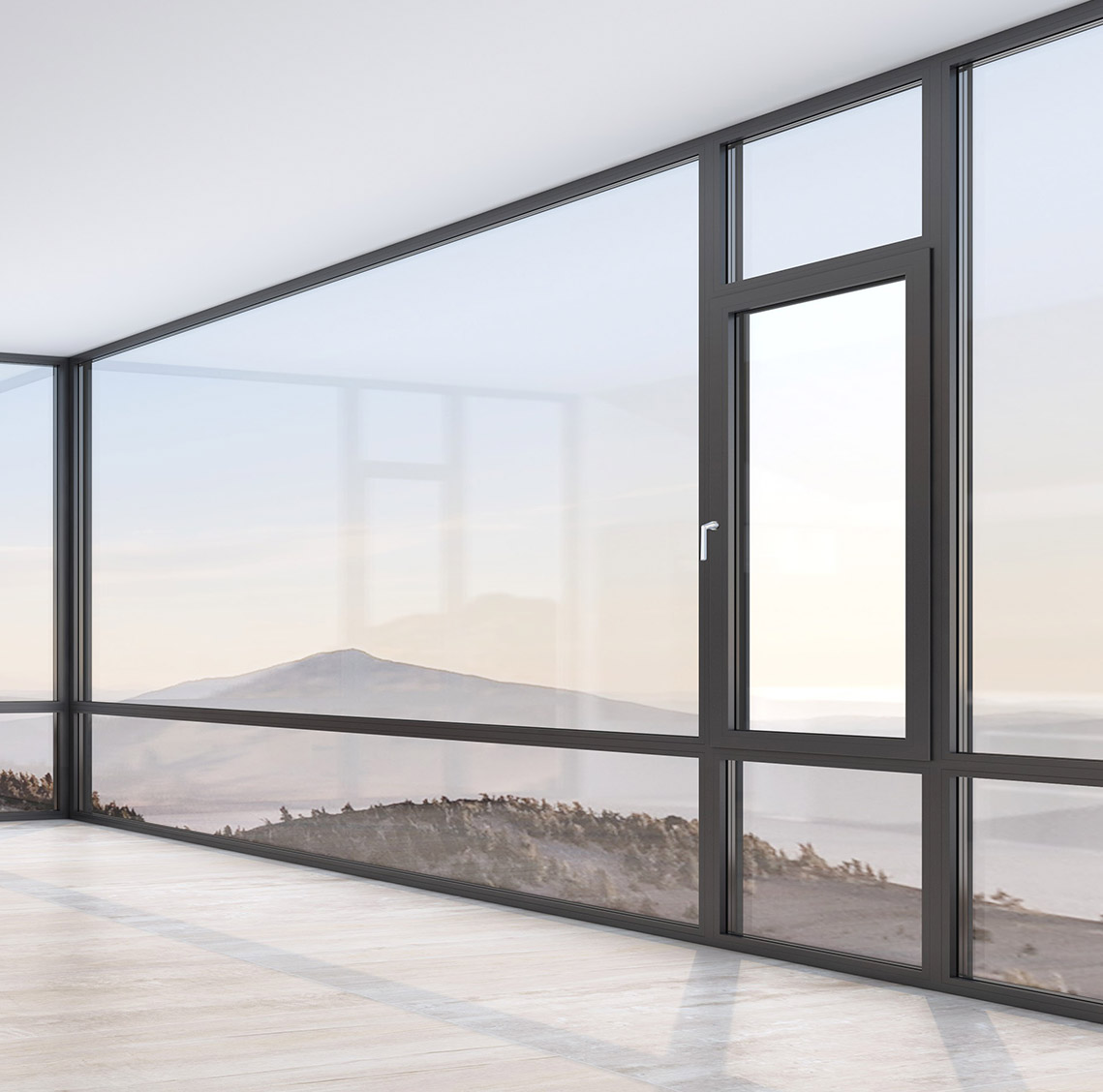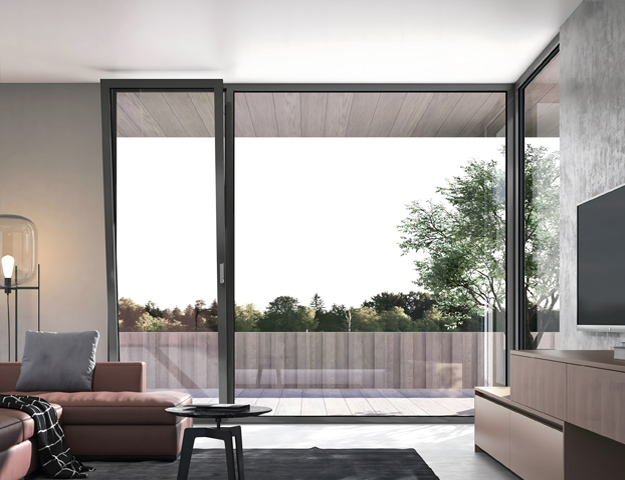8 Critical Pitfalls to Avoid When Choosing Casement Windows for Your Renovation!
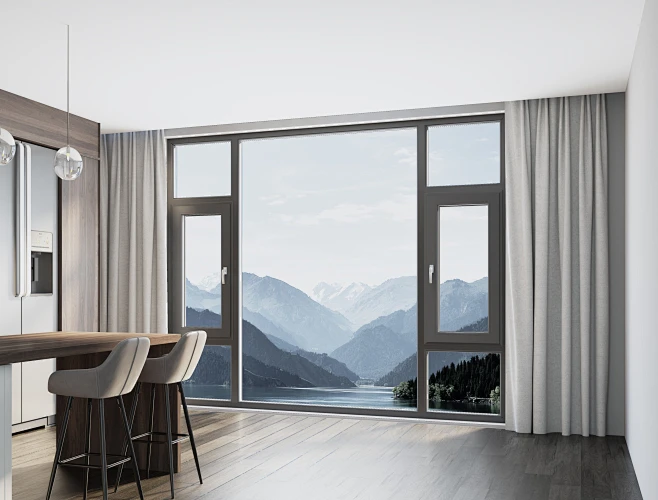
Renovating your home? Window selection is crucial. It impacts not only aesthetics but also daily comfort, energy efficiency, and safety. Casement windows are popular for their excellent seal and ventilation. However, the selection process is fraught with potential “traps.” Making the wrong choice can lead to poor living experiences, safety hazards, and costly, time-consuming fixes later on. Today, we’ll detail the 8 major pitfalls you must avoid when choosing casement windows to help you make the right choice effortlessly.
Pitfall 1: The Larger the Opening Sash, the Better? Beware of Safety Risks!
You dream of enjoying sunlight and breeze by a large picture window. But when the opening sash is too wide, you feel like you’re leaning out every time you open it, raising concerns for children and the elderly.
- The Problem: Many believe a larger opening area means better ventilation. While this is true to an extent, it introduces problems. A larger sash means significantly heavier glass, putting immense strain on the hardware (hinges, locks), accelerating wear and tear, leading to loose windows and difficult operation. More critically, an overly wide sash can cause one to lean out too far when opening or cleaning, posing a safety risk.
- Recommendation: Bigger isn’t always better. The recommended dimensions for a single casement sash are typically 500mm to 700mm in width and 900mm to 1400mm in height. This range ensures effective airflow while maintaining safety and the longevity of the hardware.
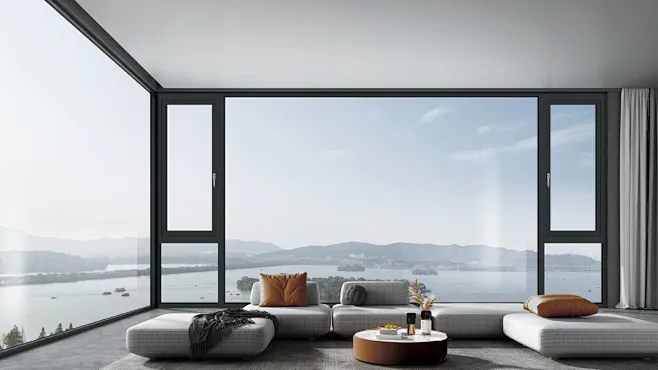
Pitfall 2: Single Pane Glass is Sufficient? A Blow to Comfort and Energy Bills!
To save money, you opt for single-pane glass. Come summer, the room turns into a greenhouse with skyrocketing AC bills; in winter, drafts make it impossible to keep warm.
- The Problem: Single-pane glass offers poor thermal insulation (high U-factor) and negligible heat insulation. This leads to indoor temperatures being heavily influenced by the outside environment, resulting in discomfort and high energy consumption for heating and cooling. Replacing them later is messy and expensive.
- Recommendation: We strongly advise investing in double or triple-pane insulated glass units (IGUs), preferably with tempered glass for safety. A common configuration is 5mm + 12A + 5mm (two 5mm panes with a 12mm argon-filled gap).
- Superior Insulation: The gas fill (e.g., Argon) reduces heat transfer.
- Excellent Soundproofing: Significantly dampens outside noise.
- Safety & Clarity: Tempered glass is safer and maintains good clarity.
- Table – Glass Configuration Comparison:
| Glass Type | Thermal Insulation | Noise Reduction | Recommendation |
|---|---|---|---|
| Single Pane | Poor | Poor | ★☆☆☆☆ |
| Standard Double Pane IGU | Good | Good | ★★★☆☆ |
| Double Pane Tempered IGU (with Low-E) | Excellent | Excellent | ★★★★★ |
| Triple Pane Tempered IGU | Superior | Superior | ★★★★★ (For extreme performance needs) |
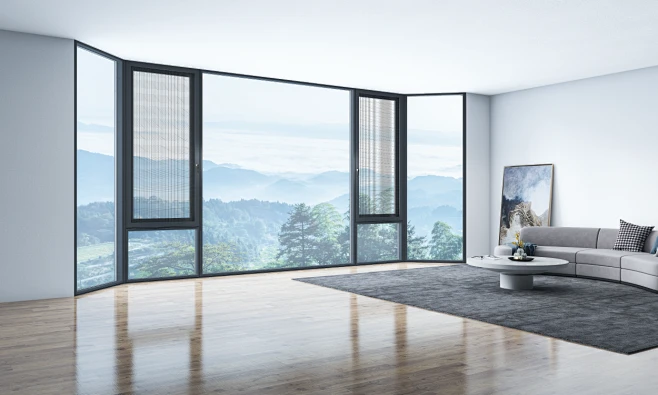
Pitfall 3: Using PVC Thermal Break? The Silent Killer of Durability!
While cheap, PVC thermal breaks have significant drawbacks: they are prone to expansion/contraction, age quickly, and their insulating performance degrades over time (high thermal conductivity), compromising the window’s overall energy efficiency.
- Recommendation: Always insist on thermal breaks made from reputable brand PA66 GF25 nylon. This material is heat-resistant, age-resistant, mechanically strong, and has a thermal expansion coefficient similar to aluminum, ensuring long-term stability and reliable thermal performance.
Pitfall 4: Opting for Standard Aluminum? The Weak Link in Comfort!
Living on a busy street with standard aluminum windows, every passing car is audible, ruining your sleep; a west-facing room becomes unbearably hot in the afternoon.
- The Problem: Standard aluminum is a good thermal conductor, leading to poor inherent thermal and acoustic insulation.
- Recommendation: Prioritize thermally broken aluminum profiles. These use a PA66 nylon thermal break to separate the inner and outer aluminum frames, creating a barrier that drastically improves thermal and acoustic insulation. Choosing aerospace-grade aluminum alloys (like silicon-titanium-magnesium) offers better strength and corrosion resistance. While slightly more expensive, it’s a worthwhile investment for long-term comfort.
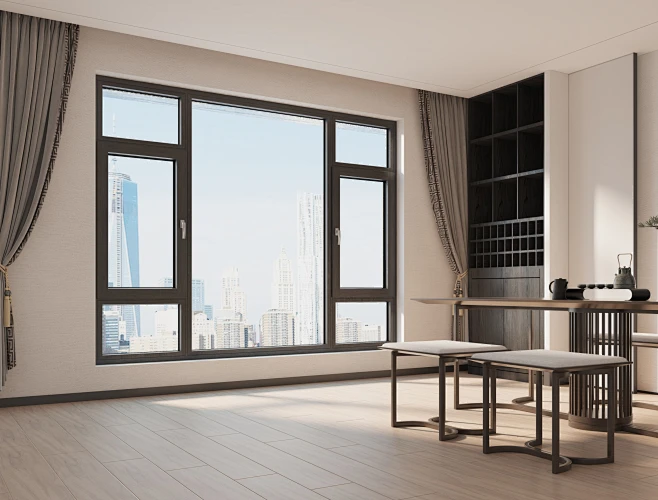
Pitfall 5: Substandard Aluminum Profile Thickness? The Foundation of Structural Safety!
- The Problem: The aluminum profile is the window’s skeleton. Its wall thickness directly relates to the window’s structural strength and stability. Using profiles below national standards (e.g., old standards of 1.4mm) results in weak wind load resistance, potential safety hazards, and susceptibility to deformation.
- Recommendation: According to updated standards, the minimum measured wall thickness for the main load-bearing parts of exterior window profiles should not be less than 1.8mm. If your budget allows, or if you live in a high-rise or coastal windy area, choosing profiles with 2.0mm or greater thickness is more robust and secure. Always ask for specifications and check test reports.
Pitfall 6: Installing Single Frame Windows Only? A Gap in Sealing and Bug Proofing!
- The Problem: Single frame windows require a separate add-on screen. This two-piece system is less integrated, often leading to poorer seals that allow tiny insects to enter. The independent screen frame is also less rigid and more prone to bending.
- Recommendation: Opt for integrated frame and screen casement windows. These feature a unified design where the screen frame is integrated with the window frame, offering higher overall strength, better sealing and insect protection, a cleaner aesthetic, and unobstructed views and ventilation.
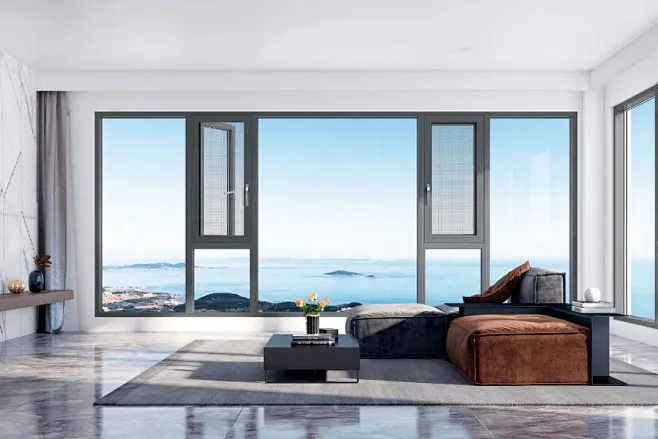
Pitfall 7: Choosing Joined Spacer Bars? A Detail Affecting Aesthetics and Seal!
- The Problem: Many low-cost windows use aluminum spacer bars joined at the corners. The seams, sealed with glue, are potential points of failure for gas leakage and dust ingress. The visible seams and threaded hole can also be unsightly.
- Recommendation: Select windows with warm edge spacer bars that are bent from a single piece of metal (like Swiss Spacer or similar). Having no corners or seams, they offer superior sealing, effectively preventing dust and moisture from entering the glass cavity (preventing internal fogging) and present a cleaner, high-end look.
Pitfall 8: Opting for Exposed Drainage Holes? A Headache for Cleaning and Drainage!
After a heavy rain, you find water pooling in the window track or even seeping inside; the exposed drainage holes have also become entry points for tiny bugs.
- The Problem: Exposed drainage (simple holes drilled in the outer frame) is prone to clogging with dust and debris, allows insects to enter, and the drain caps can easily get lost. Poor design can lead to inadequate drainage, air leakage, or even water backflow during wind-driven rain.
- Recommendation: Choose windows with a concealed drainage system or multi-step cascade drainage. This design hides the drainage channels within the profile, making them aesthetically pleasing, preventing clogging and insect entry, ensuring thorough drainage, and avoiding backflow issues.
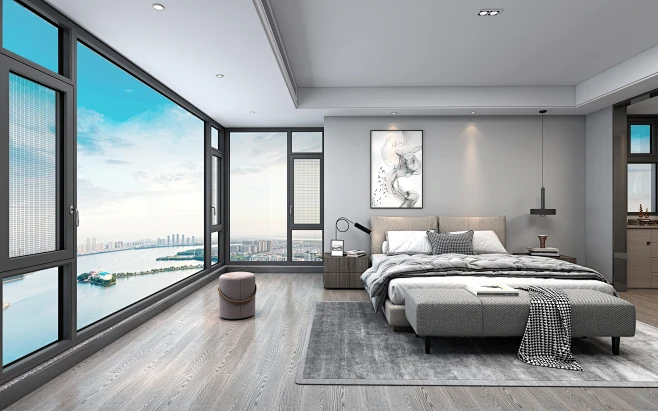
Casement Window Q&A
- Q: Which is better, a standard casement window or a tilt-and-turn window?
- A: Both have merits. Standard casements offer maximum ventilation area. Tilt-and-turn windows provide versatile operation: the tilt position allows for secure ventilation during light rain, gentle draft-free air circulation, and is space-saving and safer around children and curtains.
- Q: Are hardware components important? How to choose?
- A: Extremely important! Hardware is the “heart” of the window, directly affecting operation feel, smoothness, sealing, and lifespan. Don’t cut corners here. Invest in reputable brand hardware systems (e.g., Hoppe, Siegenia, G-U) to ensure long-term reliability and safety.
- Q: How can I simply check the window’s sealing performance?
- A: 1) Look at the profile: Check if the thermal break is continuous. 2) Feel the gaskets: The sealing rubber gaskets should be soft and elastic, with neat corners. 3) Ask about configuration: Inquire if it uses a multi-point locking system and multiple seals (usually at least 3). 4) Simple test: After closing the window, check for noticeable drafts around the edges. Try pulling a piece of paper clamped in the closed sash; it should be held firmly.
Selecting casement windows requires careful consideration. By avoiding these 8 common pitfalls and focusing on the core elements – profile thickness & material, glass configuration, thermal break, hardware system, and drainage design – you can choose windows that are safe, durable, energy-efficient, and enhance your quality of life. Doing your homework and choosing carefully during your renovation will lead to a more perfect home.
Contact State Crown
Explore the State Crown products
CASEMENT WINDOW
US CASEMENT HANDY WINDOW GB-90
Specifically designed for the North American market, our US Casement Handy Windows combine rugged durability with user-friendly operation. Featuring heavy-duty extruded aluminum frames (meeting AA...
CASEMENT WINDOW
BULLETPROOF CASEMENT WINDOW GB-88
State Crown’s certified bullet-resistant casement windows provide UL Level 1-8 ballistic protection without compromising aesthetics. Constructed with multi-laminated glass (up to 60mm thick)...
CASEMENT WINDOW
CASEMENT WINDOW GB-K80
State Crown’s casement windows redefine ventilation efficiency with their outward-opening design that captures cross-breezes effectively. Constructed with thermally broken aluminum profiles ...
Contact State Crown
Custom Solutions for Global Projects
Established in 2005, we specialize in the customization of premium aluminum alloy doors and windows. With over ten years of industry experience, we are committed to the product philosophy of "Safety, Practicality, and Advanced Technology".
- ISO9001 Quality Management System
- EU CE certification
- IPMS (Intellectual Property Management System)
- Australian, American, and Canadian standards
We are located in Foshan, Guangdong, just under one hour's drive from Guangzhou Baiyun International Airport, in the heart of the Pearl River Delta Economic Zone.
If you are interested in any of our products, or would like to discuss a custom order, please feel free to contact us. We look forward to building long-term business relationships with clients around the world.
